Client Case
Levi's
Waterless Products

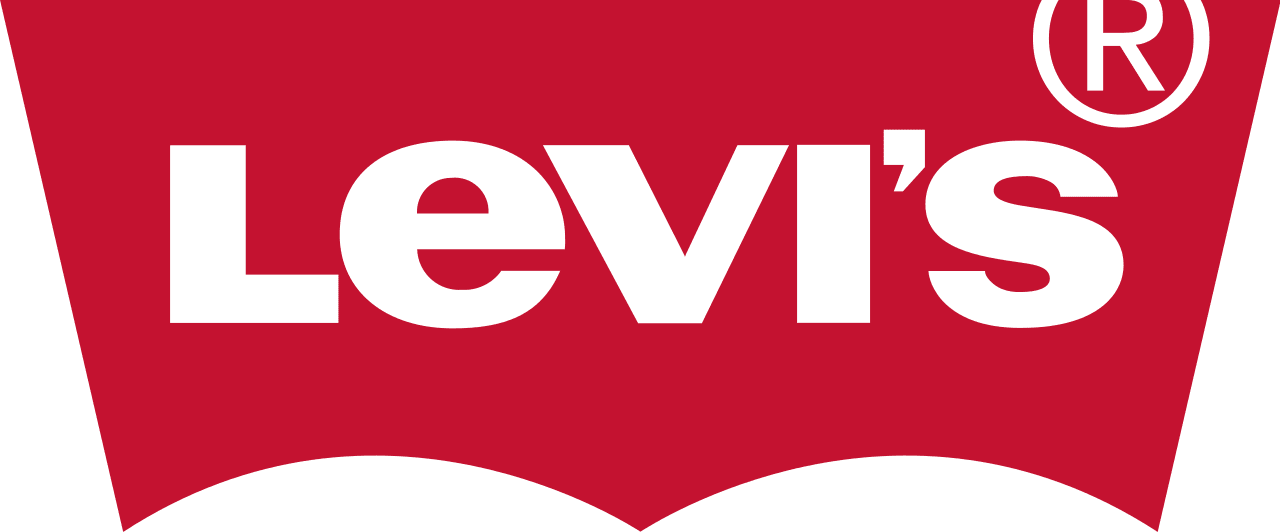
CASE STUDY
Levi’s, also known as Levi Strauss & Co is one of the world’s global leaders in denim. The company designs and markets jeans, casual wear and related accessories for men, women and children. They’ve been innovating denim culture ever since 1873, the year Levi’s created the original blue jean.
Industry
Fashion & Luxe
Clients
World Wide Consumers
Location
United States, Worldwide
Blue jeans production has a significant environmental impact. Each pair of jeans requires over 42 liters of water during manufacturing, with the cotton used demanding up to 7,000 liters per pair*. Moreover, the life cycle assessment (LCA) indicates that up to 70% of the energy and water usage occurs on the consumer side. Levi’s, a privately and family-owned company with strong ethical values, was initially hesitant to communicate their corporate social responsibility (CSR) objectives to the end consumers.
At that time, fashion consumers were not widely exposed to sustainability measures from brands, making it difficult to engage them on the importance of environmental responsibility in their purchasing decisions. This hesitancy and lack of consumer awareness posed significant hurdles in advancing Levi’s sustainability initiatives. Still, some solutions existed to have a positive impact within and beyond their value chain.
To address the challenges faced by Levi’s, we implemented several strategic solutions. Firstly, we transformed their internal CSR objectives into a tangible green product line, highlighting Levi’s commitment to sustainability. We quantified the water impact along the entire supply chain and identified hotspots for significant reduction, thereby optimizing resource use. Additionally, we effectively marketed the environmental benefits of this new range, emphasizing the positive impact on water conservation.
To further engage consumers, we launched a program encouraging behavioral changes to reduce washing cycles, thereby cutting down on energy and water usage and extending the lifespan of the products. To maximize outreach and impact, we introduced a gamification and viral campaign, which successfully increased donations to NGOs, fostering a community of environmentally-conscious consumers.
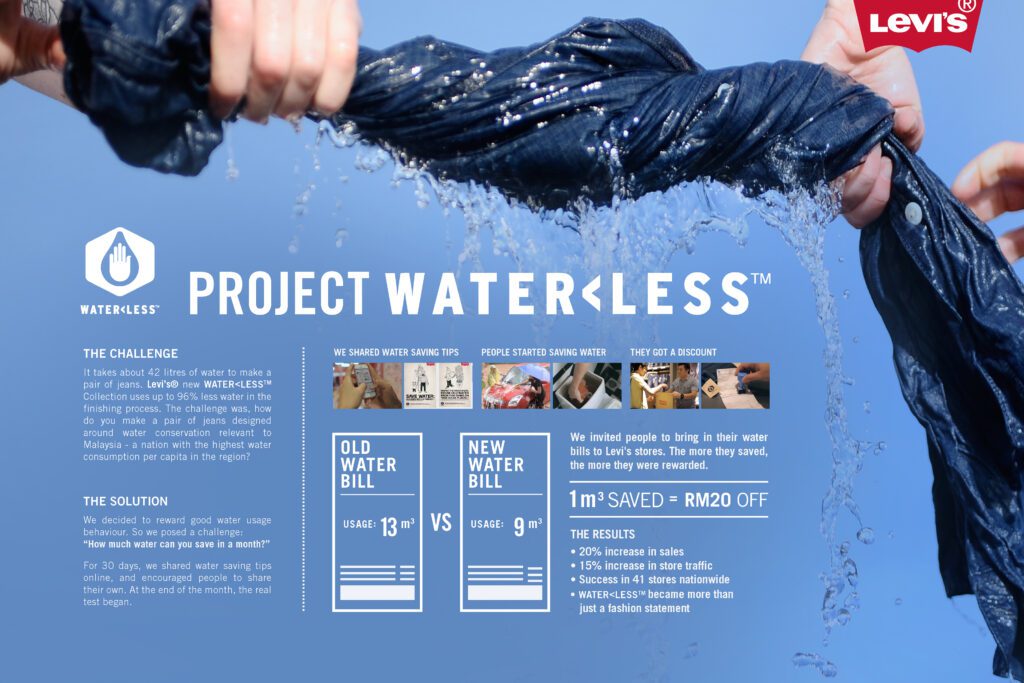
Reduced consumer energy and water usage through active engagement, provided clean water access via NGO donations, significantly conserved water in production, and boosted sales through impactful sustainability efforts.
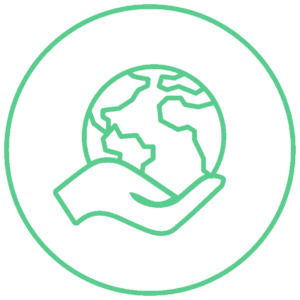
Measurable resource reduction
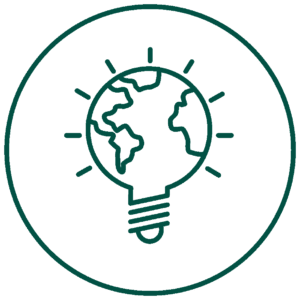
Pioneering the first eco-designed jean rang
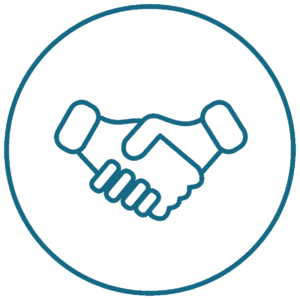
Redefining denim through circular design
